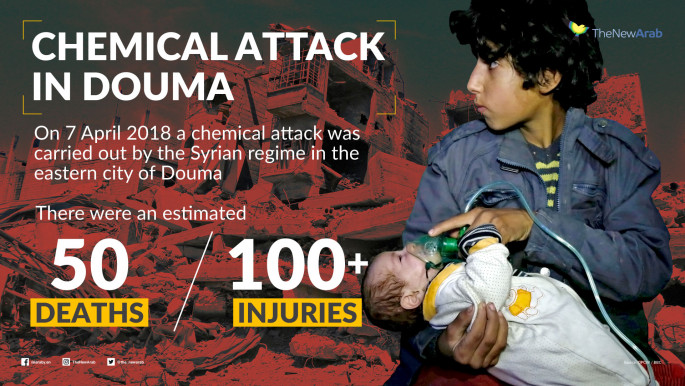Inconsistencies remain over Syria’s destruction of chemical weapons, UN disarmament chief says
UN High Representative for Disarmament Affairs Izumi Nakamitsu told Security Council members on Tuesday that a submission made by Syria regarding its chemical weapons programme “cannot be considered accurate and complete in accordance with the Chemical Weapons Convention.”
Nakamitsu addressed the council during an online session to provide an update on the elimination of Syria’s chemical weapons programme, as laid out in Resolution 2118.
The outstanding issues mean that “the international community cannot have full confidence that the Syrian Arab Republic’s chemical weapons programme has been eliminated,” Nakamitsu said.
Two years into Syria’s deadly civil war and after numerous chemical attacks that claimed the lives of hundreds of people, the UN Security Council unanimously passed Resolution 2118 in September 2013.
Nakamitsu said that despite some progress, 19 issues related to the chemical weapons programme remained outstanding.
Highlighting one issue in particular, Nakamitsu said reports and investigations of a chemical weapons production facility, which Syria claimed had never been used, showed that the production or weaponisation of chemical weapons had taken place.
|
|
“The OPCW Technical Secretariat has requested that the Syrian Arab Republic declare the exact types and quantities of chemical agents produced and/or weaponised at this site,” said Nakamitsu.
The High Representative added that Syria has yet to respond to this request.
Nakamitsu said that the OPCW’s Investigation and Identification Team is continuing to examine incidents identified by a fact-finding mission, where it was determined that chemical weapons were used or were likely to have been used.
But with the spread of Covid-19 in Syria, the work of the OPCW’s fact-finding mission has been hampered, and their ability to continue their work will be subject to “the evolution of the Covid-19 pandemic,” according to Nakamitsu.
Read more: Foreign hands in Syria's war creating new problems for Assad
Concluding her statement to the council, Nakamitsu reiterated that: “The use of such weapons with impunity and without accountability is a threat to international peace and security and a danger to us all. It is, therefore, imperative to hold accountable all those who have used chemical weapons.”
The use of chemical weapons in Syria has been reported in numerous different areas of Syria, with the most deadly attacks being the Ghouta attack in August 2013, which between 281 and 1,729 people, and the April 2017 attack in Khan Sheikhoun, which killed at least 89.
A 2019 report by the Global Public Policy Institute said that 98% of recorded chemical attacks were committed by forces loyal to Bashar al-Assad.
The Assad regime has denied using chemical weapons.
Previous chemical weapon attacks against opposition fighters and civilians has resulted in military action by the United States, the United Kingdom and France.
Follow us on Facebook, Twitter and Instagram to stay connected
![Chemical weapon attack in Syria [Syria] Chemical weapon attack in Syria [Syria]](/sites/default/files/styles/large_16_9/public/media/images/A182EFF7-8036-4E5B-9E38-50330A08CBE1.jpg?h=d1cb525d&itok=4AtIMT_s)

![President Pezeshkian has denounced Israel's attacks on Lebanon [Getty]](/sites/default/files/styles/image_684x385/public/2173482924.jpeg?h=a5f2f23a&itok=q3evVtko)



 Follow the Middle East's top stories in English at The New Arab on Google News
Follow the Middle East's top stories in English at The New Arab on Google News


